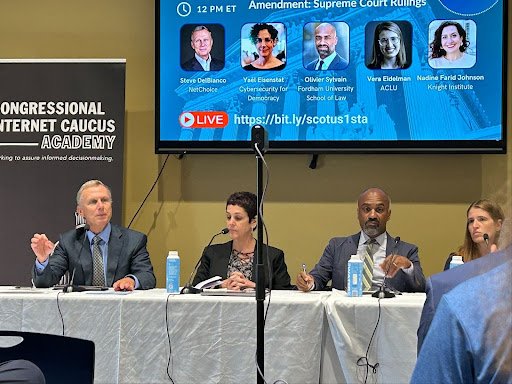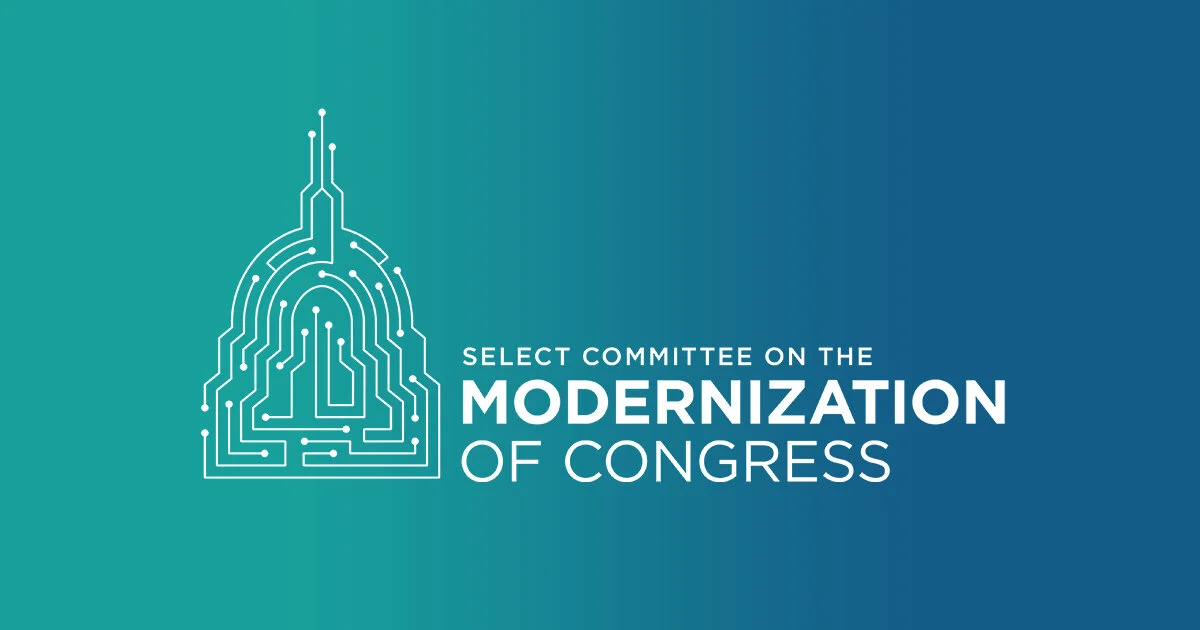Last month, the Congressional Internet Caucus Academy (CICA) hosted a panel titled “The Future of Online Safety for Kids: Legislative Change on the Horizon.” Moderated by The Hill technology reporter Miranda Nazzaro, the panel convened experts from law, policy, and child protection to explore persistent challenges in congressional efforts to protect children online.
Panelists Holly Grosshans (Common Sense Media), Ash Johnson (Information Technology and Innovation Foundation), Andrew Zack (Family Online Safety Institute), and Maureen Flatley (Stop Child Predators) expressed collective urgency about escalating online threats. However, the conversation quickly turned to the gridlocked state of legislation aimed at curbing those harms. Bills such as the Kids Online Safety Act (KOSA), COPPA (Children’s Online Privacy Protection Act) 2.0, and KOSMA (Kids Off Social Media Act) have garnered bipartisan support but have failed to cross the finish line. Many of the panelists acknowledged that, while well-intentioned, these legislative efforts remain mired in complex questions of enforcement, free speech, and constitutional viability.
Central to this gridlock, panelists debated whether a significant portion of the discussion focused on whether the proliferation of overlapping bills is advancing or hindering legislative progress. Maureen Flatley expressed frustration over what she termed a “scattershot” legislative approach, arguing that overlapping or vague provisions across multiple proposals dilute their collective effectiveness. Flatley urged Congress to streamline and consolidate these efforts, suggesting a focused dialogue might yield clearer, more actionable legislation. “Maybe it’s time to regroup the conversation, take out the conflict, and foster a real dialogue that leads to meaningful results.”
Andrew Zack took a more incremental view, suggesting that targeted, piecemeal legislation might be more viable in today’s legal and political climate. Citing legal and constitutional challenges, Zack suggested that targeted, narrower bills—such as those addressing platform design standards or youth data protections—act as opportunities for forward movement.
Ash Johnson echoed this middle-ground perspective, highlighting that current bills all include elements worth supporting alongside more contentious provisions. By breaking larger bills into smaller, more specific pieces, legislators might advance policy changes where consensus already exists. The panelists’ exchange highlighted a broader legislative tension: the difficulty of balancing urgency with precision. “Let’s stop letting perfect be the enemy of the good,” Andrew Zack added, urging lawmakers to focus on what’s realistically achievable in the near term.
Beyond legislative strategy, some panelists questioned whether current proposals effectively target the right problems. Flatley raised serious concerns about what she viewed as a misplaced legislative focus, where recent efforts place too much responsibility on regulating tech platforms at the expense of addressing criminal exploitation directly. “The word I didn’t hear anywhere [during recent hearings] was ‘criminal’—the people actually doing the victimizing.” She pointed out that tech companies already serve as mandated reporters, providing millions of cyber tip reports to law enforcement each year. She highlighted Senator Wyden’s Invest in Child Safety Act as one of the few measures focusing explicitly on criminal accountability.
On the other end of the spectrum, Holly Grosshans insisted that holding tech platforms accountable remains essential. Harmful online environments often stem from intentional design choices made by these platforms, particularly algorithms prioritizing user engagement over safety. “These features are enabling exploitation,” she said, explaining that KOSA’s “duty of care” provision is meant to prevent platforms from prioritizing engagement over well-being. “They have created the problem. They absolutely have a duty to stop the problem.”
Despite KOSA passing in the Senate last year with a sweeping 91-3 vote, the panel acknowledged uncertainty about its future in the House, where previous momentum stalled. Still, there was cautious optimism that revised and more carefully crafted versions of these bills could succeed, particularly if lawmakers commit to a collaborative and consensus-driven approach.
The panel underscored the urgent need for Congress to modernize its approach to internet governance. The stakes are high: kids are spending more time online than ever before, and the systems that shape their digital experiences are growing increasingly complex and opaque. As Grosshans concluded, “We’re not trying to censor the internet. We just want kids to be safe in the spaces they already live in every day.”











